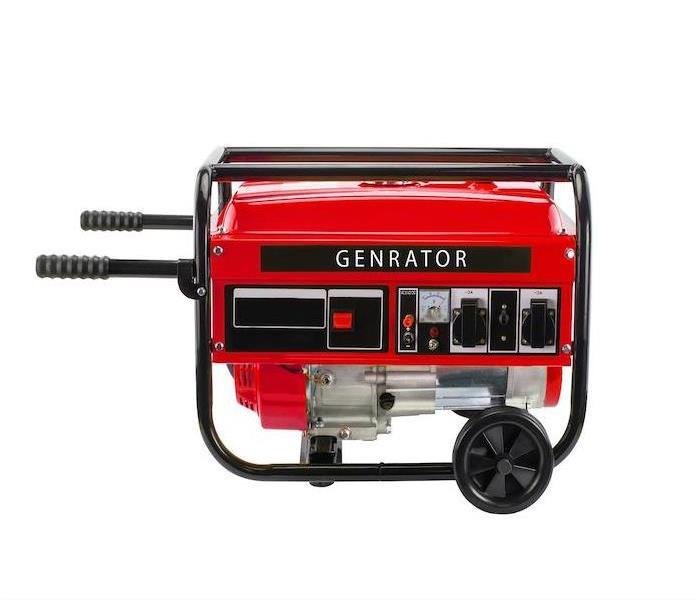Tips for Safely Using a Storm Generator | SERVPRO of East Cobb
12/16/2021 (Permalink)
 Be prepared for storm events and severe weather. Having a generator can come in handy during extended power outages.
Be prepared for storm events and severe weather. Having a generator can come in handy during extended power outages.
If you have ever experienced a power outage due to severe weather, you have likely considered getting a storm generator for your household—and for good reason. It is estimated that severe weather is responsible for a 70% uptick in power outages in recent years, and while most outages are resolved quickly, some weather events will knock the power out for days.
If you are considering a storm generator for your household, it is important that you know how to use it safely. Generators are useful, but they can be dangerous. Understanding the necessary safety precautions can ensure your family is comfortable and protected in the wake of severe weather.
Safety Considerations for Using a Storm Generator
Protect Yourself Against Carbon Monoxide Poisoning: The majority of generator models are powered by gasoline, which can lead to extremely harmful carbon monoxide fumes being emitted. For this reason, it is important to never use a generator inside the home and to keep it at least 20 feet away from all windows and doors so there is proper air flow. Additionally, it is a good idea to keep a carbon monoxide monitor in the home just in case.
Know Your Power Requirements: Generators are rated for their wattage output, so it is important to make sure you understand what your particular model can safely power. Look up the wattage requirements of each item you plan to use with the generator to avoid overloading it, as that can be a serious fire risk. Also check any extension cords or power strips you are using with the generator, as these may have specific wattage requirements as well.
Never Fuel the Generator While it is Running: Spilling gasoline on a hot, running generator can quickly start a fire. For this reason, it is a must that you turn off your generator before you fuel it up, exactly as you would when you fuel up your vehicle. That way, any spilled fuel can be cleaned up before the generator needs to be operated again to avoid the risk of a fire.
*If you have household damage due to a storm, SERVPRO of East Cobb is here to help restore both your home and peace of mind. Contact us today at (770) 424-0400 or visit www.SERVPROeastcobbga.com to learn more about our restoration services or to report damage of your own.






 24/7 Emergency Service
24/7 Emergency Service